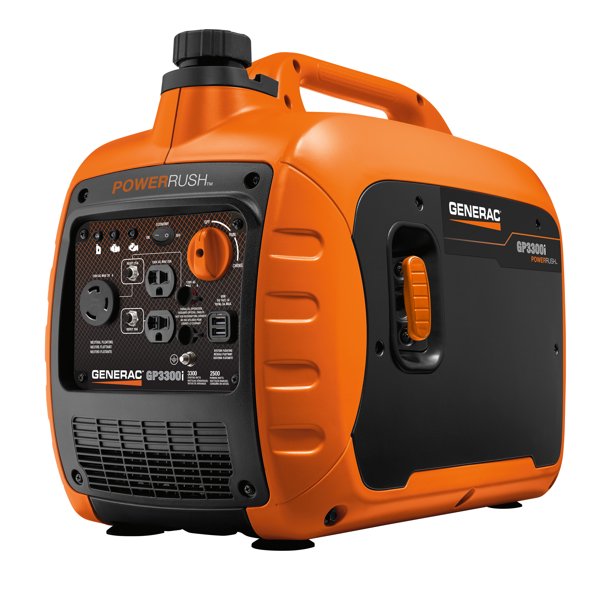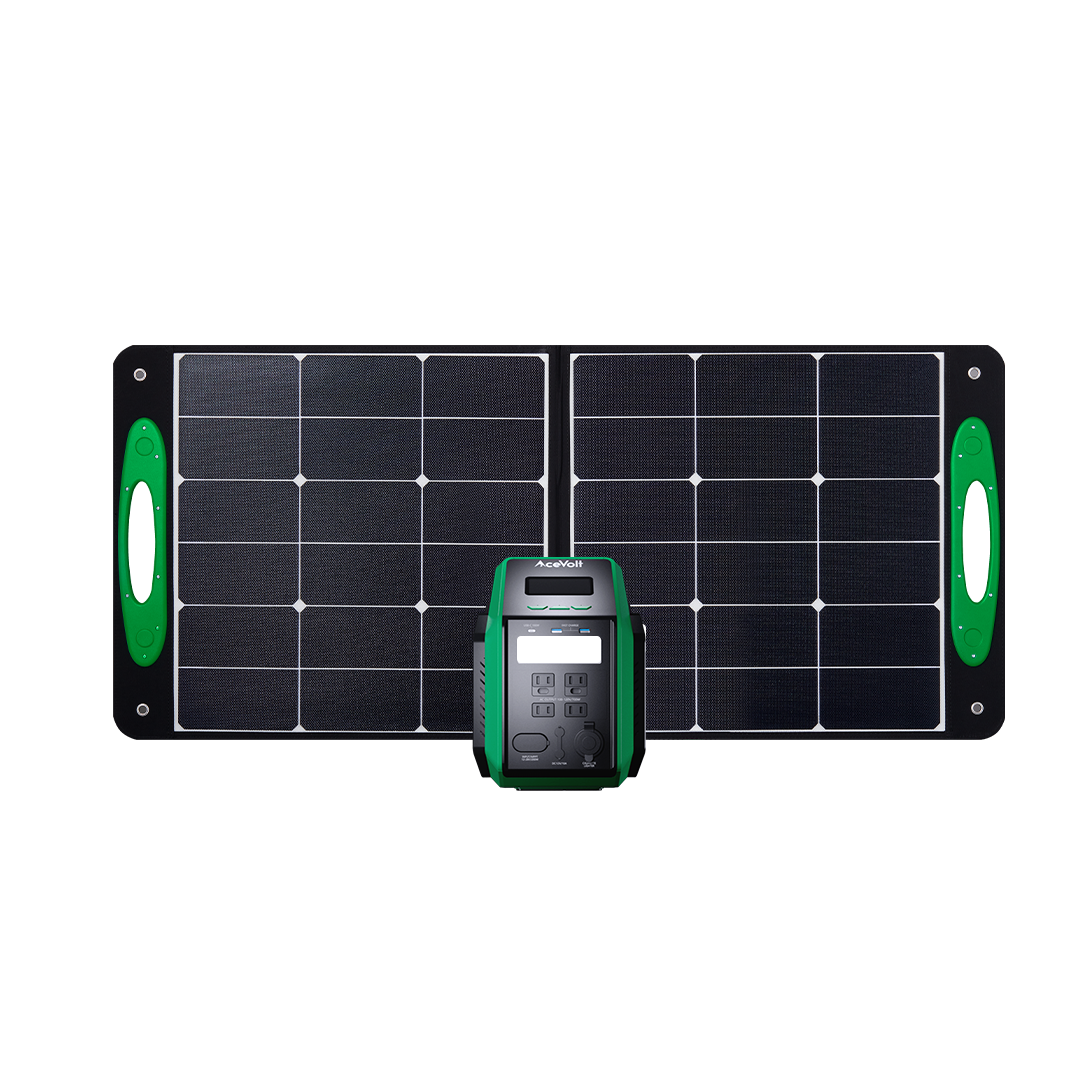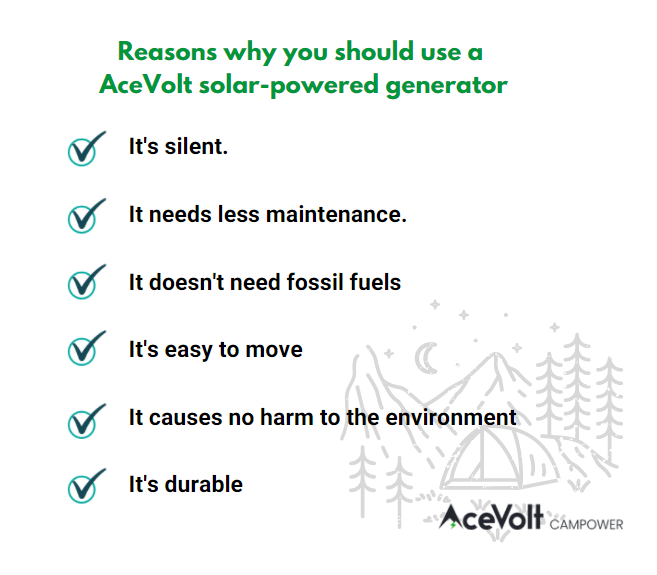
Difference Between Solar Generators And Gas Generators
In 1839, the photovoltaic effect was discovered by Alexandre-Edmond Becquerel, and that was the beginning of solar technology. Since then, solar technology has been developing exponentially, with a significant reduction in prices (over 70%) in the past few years. This immense price drop has hastened the mainstream adoption of solar technology and made it more accessible to the general public.
An example of such technology is the solar electricity generator. Solar generators are electricity generators that use, instead of gas or diesel, solar energy. This, in turn, makes them cleaner, safer, and to some certain extent, more financially sensible than their gas or diesel-powered counterparts.

What is a gas generator?
The basic idea behind a gas generator is that it converts kinetic energy (motion) into electricity. It is also known as a traditional generator. This is done by using a spinning electromagnet (armature) to produce an electrical current through a stationary magnetic field (stator). This kinetic energy is usually made possible by burning either gas or oil.
The brief overview above shows that traditional (gas) generators are made up of much more components when it comes to solar generators vs. traditional generators. Most of these components are moving, which is why gas generators need more ongoing maintenance.

The basic components of a gas generator are:
Engine: The engine is where it all begins for the gas generator. It is the source of the input mechanical energy to the generator.
Alternator: The alternator is responsible for producing the electrical output from the mechanical input supplied by the engine.
Fuel System: The fuel system consists of the fuel tank and pump. Too often, the average generator's fuel tank should be able to keep it running for 6 to 8 hours.
Voltage Regulator: This component regulates the output voltage of the gas generator. It pretty much serves the same purpose as the solar generator’s inverter. It converts AC to DC and feeds this to the relevant components, which cycle it between AC to DC and DC to AC.
Cooling and Exhaust System: Freshwater is generally used as a coolant for small generators or very large units over 2250 kW and above. However, hydrogen is generally more efficient at absorbing heat than other coolants. As for the exhaust, it is incredibly important that an adequate system is used. Fumes emitted by a generator are just like fumes from any other diesel or gasoline engine and contain highly toxic chemicals.
Lubrication System: This system is needed as, unlike solar generators, gas generators comprise many moving parts in the engine compartment. These moving parts need lubrication.
Control Panel: This is the user face that is featured on most modern generators. They contain provisions for electrical outlets and controls.
How Does a Gas Generator Work?
A gas generator converts the chemical energy of gasoline into mechanical energy and then into electrical energy. This conversion is done using an engine and an alternator. The gas burns in the engine, turning the crankshaft just like in a car. Instead of turning the wheels of a car, though, it turns the rotor in the alternator.
The rotor is a coil of copper wire. The copper wire spins past stationary magnets. As copper wire passes over magnets, the magnets induce a slight electrical charge in the wire. This is done repeatedly at a very high rate, thus generating a significant amount of electricity.

What is a solar generator?
A solar generator is a generator capable of capturing the sun’s energy via attachable solar panels. These solar panels can transport said energy to an internal storage system, converted to use by an inverter.
For solar generators, they are usually comprised of the following:
Solar Panels: Most solar generators are usually sold with or without solar panels. Solar panels are the primary source of energy, converting sunlight into electricity.
Inverter: Inverters convert the stored electricity from direct current (DC) to alternating current (AC). The purpose for this conversion is simple, as most of the appliances we all own operate using alternating current.
Charge regulator: Solar generators all come with solar charge regulator technology. This technology is built into these generators to prevent your solar panels from overcharging (thus damaging) your built-in battery.
Battery: Arguably, the most important aspect of a solar generator is the battery. The battery stores all the electricity being generated from your solar panels. It can store large amounts of solar energy at any one given time. Most solar generators are rated by their battery capacity, which is an indicator of how many/how long they will be able to charge or power devices.
How does a solar generator work?
Solar generators work by integrating a solar panel, charge controller, a battery system, and an inverter into a compact system that can convert and store solar energy, which can then be later transformed into a useable electrical current.
Solar electricity generators consist of photovoltaic (PV) panels, a charge regulator, batteries, and an inverter. The PV panels convert sunlight into electricity and send it off to the charge regulator. Meanwhile, the charge regulator pumps the electricity into the batteries and stops when they are fully charged.
The photovoltaic panels provide direct current (DC) electricity, but the electronics in your home need alternating current (AC) electricity. The inverter takes the DC electricity from the batteries and converts it into AC electricity.

What are the benefits of a solar generator?
- Solar electric generators are silent. Since there are no moving parts, you don't deal with the noise that comes from a gas or diesel-powered machine.
- Solar generators need less maintenance. Unlike most conventional fuel or gas generators, solar generators have no moving parts and do not use liquid fuel. No moving parts mean that the likelihood you will need to pay for any type of repairs is significantly lower.
- Solar generators don't need fossil fuels. That means energy does less damage on its way to your home, safer air to breathe, and fewer greenhouse gases. Aside from the obvious financial gains of using a solar generator, choosing this green technology over other fossil fuel systems has various environmental upsides. Gas-powered generators lead to air pollution contributing to climate change.
- Once the solar generator is up to full speed, it will run day and night without any input from you. During the day, the electricity charges the batteries and excess powers your equipment. At night, the batteries power your equipment. As long as there's enough daylight every day, it just goes on and on.
- Solar generators have zero running costs, unlike gas generators.
Final thoughts
While the novelty of a solar generator might be the appealing piece of attraction to would-be buyers, its functionality, ease of use, and relative inexpensiveness would convince anyone to make the switch from gas generators to solar generators. Or, for first-time buyers, buy a solar generator for camping from the go. Useful both as a backup power source for the home and camping, you'd find that your power needs are met abundantly.
Related Product























Leave a comment